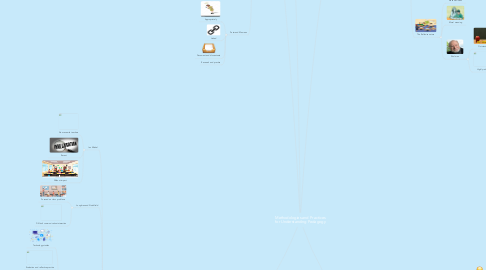
1. Researching teaching
1.1. Improve lessons
1.2. Importance of practice
1.3. Practice + research = better education
2. Understanding of pedagogy
2.1. John Smith
2.1.1. Creative teachers
2.1.2. Community benefit
2.1.3. Quality education
2.2. Researching Teaching Through Pedagogy
2.2.1. Max van
2.2.1.1. Exploring
2.2.1.2. Anecdotes
2.2.1.3. See with student eyes
2.2.2. David Treagust and Allan Harrison
2.2.2.1. -
2.2.2.1.1. Nature of teaching
2.2.2.1.2. Nature of learning
2.2.2.1.3. Technical-rationalist approach.
2.3. Between 1975 and 1985
2.3.1. Pedagogical books and articles
2.4. Research
2.4.1. They care- students
2.4.2. Non-pedagogical purposes
2.5. The Pedagogy of Student Experience
2.5.1. Teachers
2.5.2. Teacher encouragement
2.5.2.1. Important by young people
2.5.3. Student wants
2.5.3.1. Recognized
2.5.4. Believing in a student
2.5.4.1. Pedagogical power
2.6. The Reflexive nature
2.6.1. Make decisions
2.6.2. Moral meaning
2.6.3. Shulman
2.6.3.1. Outstanding
2.6.3.2. Highly rationalist
3. Teaching and research
3.1. John Loughran
3.1.1. New insights
3.1.2. Researching teaching
3.1.3. Externalize for research
3.2. The PEEL- PAVOT project
3.2.1. Teaching techniques
3.2.2. Students - activelearners
3.2.3. Study his teaching
3.3. Purpose of the teachers
4. Research and practice
4.1. Loughran
4.1.1. Trust your skills
4.1.2. Teachers without fear of learning
4.2. diversity of approaches needs
4.2.1. to be recognized
4.2.2. to be acknowledged
4.2.3. to be understood
4.3. Researching Teaching Through Collaboration
4.3.1. John Smyth
4.3.1.1. Research through practice
4.3.1.2. Teacher-Driven Change Process
4.3.1.3. Initiative
4.3.1.4. Compulsory bureaucratic
4.4. Peter Grimmett and Maureen Dockendorf
4.4.1. Tensions
4.4.2. Difficulties
4.4.2.1. ‘External expert researcher’
4.4.2.2. Teacher-researcher
4.4.3. Dilemmas
4.5. Peter and Maureen
4.5.1. Appropriately
4.5.2. Linked
4.5.3. Document and disseminate
4.5.4. Research and practice
5. The classroom as an educational context
5.1. Ian Mitchel
5.1.1. Non-research teachers
5.1.2. Recent
5.1.3. Without impact
5.2. Loughran and Northfield
5.2.1. Focused on class problems
5.2.2. Difficult communication-interaction
5.3. Researching Teaching Through Context
5.3.1. Technology studies
5.3.2. Evaluation and reflective practice
5.3.3. Alister Jones
5.3.3.1. Explore
5.3.3.1.1. Problems associated with teaching technology
5.3.3.2. Help teachers
5.3.3.2.1. To recognize
5.3.4. Helmut Fischler
5.3.4.1. Development of student-teachers
5.3.4.2. Uses repertory grids
5.3.4.2.1. For gaining information
5.3.5. Beverley Bell and Bronwen Cowie
5.3.5.1. Formative assessment
5.3.5.2. Important
5.3.6. Christopher Day
5.3.6.1. Reflective practice
5.3.6.1.1. Development of teachers’
5.3.6.1.2. Content factors
5.3.6.2. professional knowledge
5.4. Factors that may influence teachers’ explanations
5.4.1. Context factors
5.4.2. Students factors
5.4.3. Teacher factors
